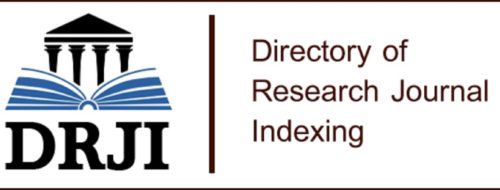Tax regime for microenterprises in the development of commercial operations
Keywords:
Regime, microenterprises, income tax, taxpayers, regulationsAbstract
This review is carried out with the objective of analyzing the impact caused by the implementation of the tax regime for micro-enterprises, allowing to know if it is being complied with in accordance with the provisions of the regulations and highlighting the purpose of creation that consists of regulating this type of business, being the sector that generates the highest profitability for the country. For the development of this work, a bibliographical research was carried out, which consists of the collection of digital information and data analysis. In addition, the inductive and analytical methods were applied using the data collection of the Internal Revenue Service, such as the collections of taxpayers for income tax. The results show that for this regime a rate of 2% is set on the income tax on income and this in turn excludes the costs and expenses for the payment of taxpayers. It is concluded then that the implementation of this regime positively influences microentrepreneurs with respect to the simplification of tax obligations since in this the tax burden is lower, on the other hand, it negatively affects having to pay a tax of the 2% on their income, considering that most of them are small entrepreneurs who at the beginning of their businesses made losses.
Downloads
References
Castillo, J. R. (2021). EFECTOS DE LA APLICACIÓN DEL RÉGIMEN PARA MICROEMPRESAS. Quito: UNIVERSIDAD POLITÉCNICA SALESIANA.
Díaz, M. S., & Tarira, G. E. (2021). ANÁLISIS DEL IMPUESTO A LA RENTA EN LOS SUJETOS PASIVOS INCLUIDOS EN EL RÉGIMEN IMPOSITIVO PARA LAS MICROEMPRESAS DE LA CIUDAD DE GUAYAQUIL EN EL AÑO 2020. Guayaquil: UNIVERSIDAD CATÓLICA DE SANTIAGO DE GUAYAQUIL. Obtenido de http://201.159.223.180/bitstream/3317/17043/1/T-UCSG-PRE-ECO-MD-CICA-78.pdf
García, V. E. (2020). El régimen impositivo para microempresas: ¿es constitucional un impuesto sobre los ingresos brutos? Quito: Tesis de Maestría, Universidad San Francisco de Quito USFQ. Obtenido de https://repositorio.usfq.edu.ec/bitstream/23000/9901/1/130947.pdf
Gordon, P. A. (2020). ANÁLISIS DEL RÉGIMEN IMPOSITIVO PARA MICROEMPRESAS EN LOREFERENTE A LA TARIFA DEL 2% DE IMPUESTO A LA RENTA SOBRE INGRESOS BRUTOS DEL EJERCICIO FISCAL EN LAS EMPRESAS DEDICADAS A LA VENTA AL POR MAYOR DE BANANO Y PLÁTANO EN ELCANTÓN EL CARMEN DURANTE EL P. Quito: Universidad Politécnica Salesiana. Obtenido de https://dspace.ups.edu.ec/bitstream/123456789/20519/1/MSQ175.pdf
Jiménez, C. F. (2021). Ventajas y desventajas de la aplicación del Régimen Impositivo para Microempresas, en MINIMARKET (distribuidoras de alimentos) ubicadas en el sector de la Biloxi del DMQ del año 2020. Quito: UNIVERSIDAD POLITECNICA SALESIANA.
Ley Orgánica de Simplificación y Progresividad Tributaria. (2019, 31 de diciembre). Ecuador.
Martillo, G. Y. (2021). Impacto tributario provocado por el régimen impositivo para microempresas del sector comercial en el Ecuador. Polo del Conocimiento, 21.
Ñacata, H. M., & Monge, J. F. (2021). Régimen impositivo para microempresas y su incidencia en el cálculo del impuesto a la renta: caso DISPROALCEX S.A. Quito: Revista Eruditis. Obtenido de https://revista.uisrael.edu.ec/index.php/re/article/view/507/432
Paredes, M. A. (2021). LIQUIDACIÓN DEL IMPUESTO A LA RENTA DE LOS MICROEMPRESARIOS COMO CONSECUENCIA DE LAS REFORMAS TRIBUTARIAS. Ambato: Tesis de Maestría, Universidad Técnica de Ambato. Obtenido de https://repositorio.uta.edu.ec/bitstream/123456789/33764/1/T5148M.pdf
Pita, J. D. (2021). EFECTOS TRIBUTARIOS DE LA APLICACIÓN DEL RÉGIMEN IMPOSITIVO DELIMPUESTO A LA RENTA PARA MICROEMPRESAS DE SERVICIOS DE LAINFORMACIÓN Y COMUNICACIÓN. Santa Elena: Universidad Estatal Península de Santa Elena.
Punina, G. C. (2020). Análisis del impacto del nuevo régimen simplificado en la recaudación tributaria. Ambato: Tesis de Maestría, Universidad técnica de Ambato. Obtenido de https://repositorio.uta.edu.ec/bitstream/123456789/31726/1/T4854i.pdf
Servicios de Rentas Internas. (2020). Régimen Impositivo para microempresas. Ecuador. Obtenido de https://www.sri.gob.ec/regimen-impositivo-para-microempresas#declaraci%C3%B3n
Suárez, R. A. (2020). RÉGIMEN IMPOSITIVO Y SU APLICACIÓN EN LAS MICROEMPRESAS DEL ECUADOR. Santa Elena: Universidad Estatal Península de Santa Elena.
Tenén, M. X. (2021). Efectos del régimen impositivo para microempresas en las agencias de viaje del Cantón. Cuenca: Universidad de Cuenca.
Published
How to Cite
Issue
Section
License
Copyright (c) 2022 Revista Científica Arbitrada Multidisciplinaria de Ciencias Contables, Auditoría y Tributación: CORPORATUM 360 - ISSN: 2737-6443.

This work is licensed under a Creative Commons Attribution-NonCommercial-ShareAlike 4.0 International License.


5.jpg)













